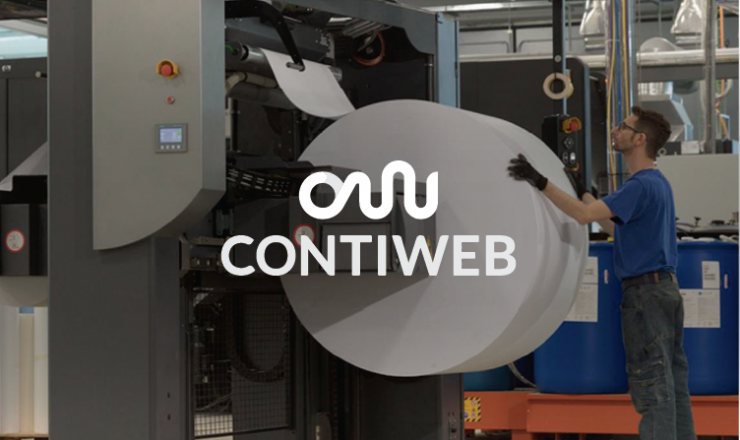

In an era of unprecedented speed and constant change, online shopping has become an essential part of our daily lives. For large-scale enterprises, offering a seamless online experience is no longer optional but a critical necessity to stay ahead of the competition. The question is, are you leveraging the full potential of enterprise e-commerce platforms to revolutionize the way you operate in the digital landscape?
In this blog, we will uncover the cutting-edge features of enterprise e-commerce platforms that fuel growth and scalability and show you how to take your online presence to the next level. If you want to stay ahead of the curve and achieve unparalleled success in today’s fast-paced business landscape, then read on and join us as we explore the world of enterprise e-commerce platforms.
Features of enterprise e-commerce platforms
B2B e-commerce platforms offer a world of possibilities to businesses that want to expand their reach and boost their bottom line. From handling massive product catalogues to providing advanced analytics capabilities, enterprise e-commerce platforms are equipped with everything a business needs to grow and thrive in today’s digital landscape.
Let’s dive deeper into the key features that make enterprise e-commerce platforms an excellent option for businesses seeking growth and scalability:
Robust infrastructure
These platforms are equipped with a robust infrastructure capable of handling high volumes of traffic, data, and transactions. This ensures that the platform can accommodate sudden spikes in traffic without compromising performance or uptime.
Flexibility for large product catalogues
Businesses can organize and manage thousands of products in a streamlined and intuitive way. This flexibility allows them to handle large product catalogues efficiently.
Multichannel selling capabilities
Businesses can expand their sales channels with ease, as these platforms offer multichannel selling capabilities. They allow businesses to sell their products across various online marketplaces and social media channels, providing access to a broader customer base.
Customization options
Extensive customization options allow businesses to tailor their storefront to meet their unique needs. Custom branding and specialized functionality and integrations are some of the options that businesses can avail of.
Advanced analytics
With advanced analytics capabilities, businesses can get data-driven insights to make informed decisions. These platforms offer a range of metrics and analytics tools to track performance, measure customer behavior, and improve conversion rates.
Integration with third-party tools
Seamless integration with third-party tools such as Enterprise Resource Planning (ERP) Product Information Management (PIM), Digital Asset Management (DAM), and Customer Relationship Management (CRM) systems provides enhanced functionality and capabilities to the e-commerce platform.
Personalization options
Personalization options empower businesses to provide exceptional customer experiences, by enabling them to create targeted marketing campaigns and deliver personalized product recommendations. These platforms allow businesses to track and analyze customer behavior, preferences, and purchase history, enabling them to tailor their offerings to each individual customer. By providing a more personalized experience, businesses can build stronger relationships with their customers and increase customer loyalty.
Expansion to new regions/countries
Expanding into new regions and countries is made easier with the robust internationalization support provided by enterprise e-commerce platforms. With features such as multi-language and multi-currency, businesses can cater to customers from different regions, speaking different languages and using different currencies. In addition to these features, compliance with different laws and regulations across regions, such as GDPR, is an important consideration for businesses selling online. Enterprise e-commerce platforms offer features to help businesses comply with different laws and regulations, ensuring they meet the legal requirements of each region they operate in.

Unlock your e-commerce potential!
Discover the Ultimate Guide to Enterprise E-Commerce Platforms
Choosing the right enterprise e-commerce platform
Features are such an important consideration if you are a business looking to scale. But with so many vendors out there promising you the same thing, how do you know which B2B e-commerce platform can truly cater to your unique business needs. From robust infrastructure to customization options and advanced analytics, the right platform can make a significant difference in the success of your e-commerce operations. To make the selection process easier, consider checking out our 5-step guide on Choosing the Right Enterprise E-commerce Platform. Or read on for our top tips for evaluating scalability and future-proofing your e-commerce operations:
TIP 1# Ensure integration capabilities
An enterprise e-commerce platform that can integrate with other systems is crucial for future-proofing your e-commerce operations. Look for platforms that can seamlessly integrate with third-party tools like customer relationship management (CRM), inventory management, and accounting systems. This integration can help you streamline your operations, reduce manual errors, and gain a more comprehensive view of your business performance.
TIP 2# Plan for growth
When evaluating an enterprise e-commerce platform, it’s essential to consider its scalability capabilities, particularly in terms of internationalization. Look for a platform that can handle high volumes of traffic, transactions, and data, and can easily accommodate growth without compromising performance or uptime, even as your business expands to new regions and countries.
Tip 3# Consider flexibility
To future-proof your e-commerce operations, it’s crucial to select a platform that is flexible enough to handle changes and adaptations to your business needs. Look for platforms that can support new features, integrations, and customizations, and can easily adapt to new market trends.
TIP 4# Look for built-in analytics
Analytics tools are essential for tracking and measuring the success of your e-commerce operations. Look for a platform that includes built-in analytics features that can help you monitor and optimize your performance. Advanced analytics tools can help you gain insights into customer behavior, track conversion rates, and measure the success of your marketing campaigns.
Sana Commerce Cloud for enterprises
Sana Commerce Cloud has become a game-changer in the world of e-commerce platforms. With a focus on B2B ecommerce, we provide an all-in-one solution that makes it easy for businesses to scale and grow. Our platform is highly customizable and can be tailored to meet specific business needs. Below are some key features that Sana Commerce has to offer that can help enterprises do just that:
- Multi-account hierarchy
- Multi-storefront capabilities
- Content block customization
- Sana Commerce Insights (Standard)
- Load balancing support
- Single sign-on capabilities
ERP-integrated e-commerce: The right solution for enterprises looking to scale and grow
As businesses grow and expand, managing their operations and data can become increasingly complex. This is where an ERP (Enterprise Resource Planning) integrated e-commerce solution comes in. An ERP integrated e-commerce solution like Sana Commerce is designed to streamline processes, eliminate data silos, and enhance business agility.
Integrating your e-commerce platform and ERP system can revolutionize the way you run your business. With ERP integration, data is fully automated in real-time, ensuring accurate and up-to-date information to make informed decisions quickly. This seamless flow of data between your systems reduces manual errors and increases efficiency, saving time and resources.
You can manage your entire operation, from inventory to financials, in one system, reducing the need for manual data entry and minimizing errors. ERP integration is easy to implement and requires minimal technical expertise, allowing you to start enjoying its benefits without disruption.
Gain a competitive edge with customizable data mapping, complete ERP functionality, and fully automated, real-time integration.

Speak with an e-commerce expert
Final thoughts
Choosing the right enterprise B2B e-commerce platform is crucial for businesses seeking to grow and scale in the years ahead. B2B e-commerce platforms offer a more complex set of features and functionalities than traditional, mainstream e-commerce solutions, including seamless ERP integration and robust internationalization support.
To ensure success, businesses must select a platform that matches their growth plans and supports their internal strategies. This requires careful consideration of factors such as flexibility, customization options, multichannel selling capabilities, and more. By leveraging the power of an enterprise B2B e-commerce platform like Sana Commerce Cloud, businesses can unlock new growth opportunities and achieve their goals faster.

PALFINGER
See how Sana Commerce is elevating the customer value and becoming an integrated solution provider.

Contiweb
Explore how Contiweb turned to Sana Commerce to significantly improve its internal process and SAP automation. Ultimately increasing online sales via the webshop.

PALFINGER
See how Sana Commerce is elevating the customer value and becoming an integrated solution provider.
